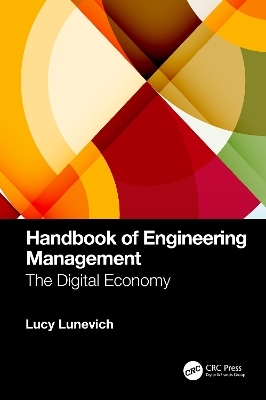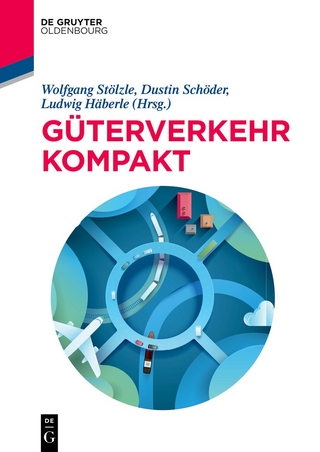
Handbook of Engineering Management
CRC Press (Verlag)
978-1-032-44810-7 (ISBN)
The Engineering Management discipline remains complex and multidisciplinary, and has progressed and broadened in scope significantly over the last 10–20 years. Previously, the discipline has been fragmented and not aligned with the purposes of economic development, mega-project delivery, and technological progress. Digital engineering has revolutionized the field of engineering by introducing digital tools and technologies to the design, creation, operation, and maintenance of physical systems, products, and services. It has enabled more efficient, effective, and sustainable solutions, and has the potential to drive significant innovation and improve the way we design, build, and operate physical systems. This handbook addresses new content of complexity by offering new engineering concepts such as simple, complicated, and complex, which have never been included in this discipline before and will generate interest from higher education, financial institutions, and technology companies.
Handbook of Engineering Management: The Digital Economy focuses on multidisciplinary integration and complex evolving systems. It discusses the incorporation of a system of systems along with engineering economic strategies for sustainable economic growth. This handbook highlights functional leadership as the main part of an engineering manager’s competency and discusses how to form alliances strategically. In addition, it presents a comprehensive guide for the implementation of an environmental management system and shows how environmental and social impacts can be assessed in an organization applying digital tools. This handbook also brings together the three important areas of Engineering Management: Knowledge Management, the Digital Economy, and Digital Manufacturing.
In addition, this handbook provides a comprehensive guide to implementing an environmental management system and shows how environmental and social impacts in an organization can be assessed using digital tools. Based on the authors’ practical experience, it describes various management approaches and explains how such a system can be used to prioritize actions and resources, increase efficiency, minimize costs, and lead to better, more informed decision making. It is essential to follow a systematic approach and to ask the right questions, whether the system is managed and implemented by humans, AI, or a combination of both. This handbook is laid out in a series of simple steps and dispels the jargon and myths surrounding this important management tool.
This handbook is an ideal read for engineering managers, project managers, industrial and systems engineers, supply chain engineers, professionals who want to advance their knowledge, and graduate students.
Dr Lucy Lunevich is a Multidisciplinary Researcher, Best-Selling Author, Well-known Speaker and strategic advisor, Senior Lecturer and Program Director of Master of Engineering Management in RMIT University, Melbourne, Australia. Before joining RMIT University in 2017, she was a Principal Consultant and Research Manager in Shell Global, URS Corporation and led multi-disciplinary teams. Dr Lunevich received her Doctorate in Science, from Victoria University, Melbourne. She also holds a Master of Resource and Environmental Planning, Massey University, NZ, a Master and Bachelor in Sanitary Engineering and Public Health, Riga Technical University, Latvia, and an Advanced Study from Harvard Kenny School, USA. Lucy’s research interest focuses on complex evolving systems including economics, social ecology, environmental systems, adaptive environmental management, climate change and disaster management. She has been recognized as a scholar in critical digital pedagogy and published "Creativity in Teaching and Teaching for Creativity in Engineering" book. Dr Lunevich has over 36 publications, 12 book chapters and 3 books and 6 industry reports for the global resource sector.
Chapter 1 Future of Engineering Management in the Age of Data-Driven Decision-Making
John V. Farr, David Farr, and Lucy Lunevich
Chapter 2 Engineering Economic Strategy and Problems of Economic Complexity
Lucy Lunevich
Chapter 3 Engineering Management – Cultural Intelligence
Milan Simic and Vuk Vojisavljevic
Chapter 4 Complex Evolving Systems and Iterative Approach to Solving Complex Problems
Lucy Lunevich
Chapter 5 Leadership, Group Leadership, Functional Leadership
Sebastian Salicru
Chapter 6 Decision Analysis Driven by Big Data for Engineering Managers
John V. Farr and David Farr
Chapter 7 Forming Alliances Strategically
John Mo and Matthew C. Cook
Chapter 8 Digital Manufacturing
Annelize Botes
Chapter 9 Future Fuels
Colin A. Scholes
Chapter 10 Environmental and Social Impacts Assessment and Management
Oswald Eppers
| Erscheinungsdatum | 15.12.2023 |
|---|---|
| Zusatzinfo | 59 Line drawings, black and white; 13 Halftones, black and white; 72 Illustrations, black and white |
| Verlagsort | London |
| Sprache | englisch |
| Maße | 156 x 234 mm |
| Gewicht | 789 g |
| Themenwelt | Technik ► Umwelttechnik / Biotechnologie |
| Wirtschaft ► Betriebswirtschaft / Management ► Logistik / Produktion | |
| Wirtschaft ► Volkswirtschaftslehre | |
| ISBN-10 | 1-032-44810-5 / 1032448105 |
| ISBN-13 | 978-1-032-44810-7 / 9781032448107 |
| Zustand | Neuware |
| Haben Sie eine Frage zum Produkt? |
aus dem Bereich


